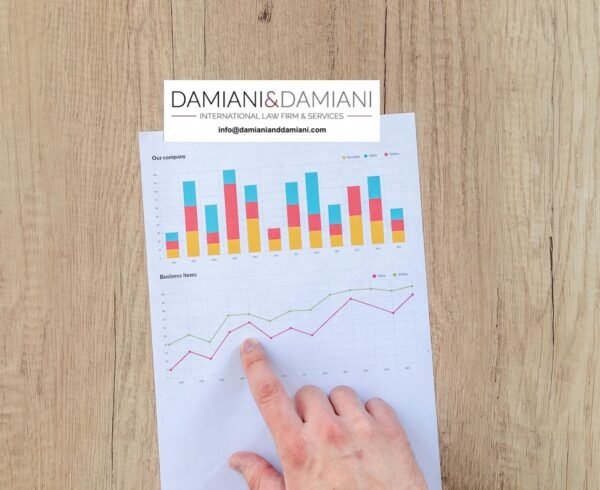At the very moment, Italian Legislator is about to regulate on one of the most widespread phenomena going on in Europe: sharing economy. Also known as collaborative economy, it’s a reality that doesn’t easily fall into traditional notions, though it has been around for several years already, spanning from the most diverse sectors, such as open source and car sharing.
Sharing economy is not just a way to save money or to conduct business. Sharing economy is a concept, an idea, a ‘lifestyle’. Sharing economy is a social phenomenon. It’s a way to cooperate to reach a goal, together. It’s a mean to allocate goods, resources and services and to allow not just individual, but collective benefits. It’s anything accessible to anyone. Sharing economy is the future, a future where resources meet technology in order to make available things that were a privilege of the few, avoiding waste and monopolies, and creating new resources and new profits.
Sharing economy is for everybody, and everybody’s; but nobody owns it. Yes, because sharing economy is based upon a big renounce. The renounce of one of the most important rights in Man’s history. A right that moved peoples, economies, Countries, Nations: sharing economy is renouncing the right of property. That “exclusive” right which grants each individual to be the only one. The only one to exercise power over a good, even the power to destroy it. Sharing economy dismantles the very concept of “exclusivity”: to use a good, a service, a resource without ever gaining its property. The enjoyment to the detriment of possession. Sharing economy subverts old schemes, breaks the system that ruled Italy so far: accessing everything without owning a thing. Now it’s possible to put aside the burdensome property, la roba as Sicilians say, thanks to sharing economy.
And thanks to internet, obviously. Internet: 21st century’s far west. A place that is an infinite web with no centre of gravity. The same place where the legislator struggles to harness this realm of absolute freedom. That’s the place where sharing economy can live and prosper: on the digital platforms.
For this reason, a bill has been proposed: “Discipline of digital platforms for the sharing of goods and services and regulations for the promotion of sharing economy”. After months of stagnation, 2017 has brought a strong increase in parliamentary works on the bill, with amendments and plenty of innovation.
On January 18, 2017, the restricted committee, appointed by the parliamentary committee to edit the final draft, has finished its job, besides the amendments proposed within the committee.
Finally, the bill contains a definition of digital platform; moreover, the draft defines the operating users as consumers, specifying that digital platforms for the exchange between “professional supplier of goods and services”, that is individuals who act within their entrepreneurial, commercial, artisanal or professional activity, are not included.
The legislator wish to focus just on the protection of consumers, putting aside sharing economy relations between professional from the regulated digital platforms.
The legislator defines sharing economy as follow: “the economy generated by an optimized and shared allocation of goods, with no transfer of their property, and services for digital platform”. This definition, then, puts aside from the range of the bill all the digital platforms where the users have a right of property on the goods used to execute the requested service.
But the real, long awaited, news of the final bill is that the Legislator included the obligation for digital platforms’ managers to conclude their contracts with the users only in written form.
Another relevant measure concerns the inclusion of digital platform operators in the National Electronic Register (Registro elettronico nazionale) held by the National Authority on Competition and Trade (Autorità Garante della Concorrenza e del Mercato), inclusion which now becomes optional. Therefore, adopting a Code of Self-regulation becomes optional as well.
At the same time, new obligations upon digital platform operators are introduced, as the requirement to manage exclusively electronically payments and the provision to establish a unique registration procedure for all the users.
Lastly, the new bill on sharing economy contains a relevant provision on fiscal grounds: a VAT exemption for sharing economy activities on digital platform.
Although the objective of the Italian Legislator to regulate such an important element of modern economy is indeed commendable, there still are some amendments on the new bill on sharing economy that are considered quite weak. The abrogation of the compulsory inclusion of the digital platform operators in the National Electronic Register is surely positive for the right to freely carry out a business and was demanded by many. Nonetheless, most of the rules in the bill appear to be unclear and many of the parliamentary committee choices seem unreasonable. The road to obtain a law on sharing economy’s digital platform is still long, and there is little doubt that future amendments to the bill will be plenty of surprises.
However, the mere fact the bill has been discussed in the parliamentary committee is a big step forward for Italian legislation and – ultimately – for the Italian economy. However, the question remains: are Italians ready to renounce to the right of property? Web-based Sicilians, are you ready to say goodbye to “la roba”?














